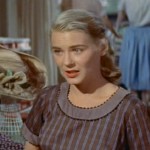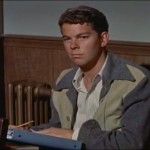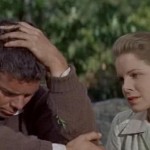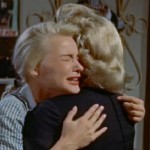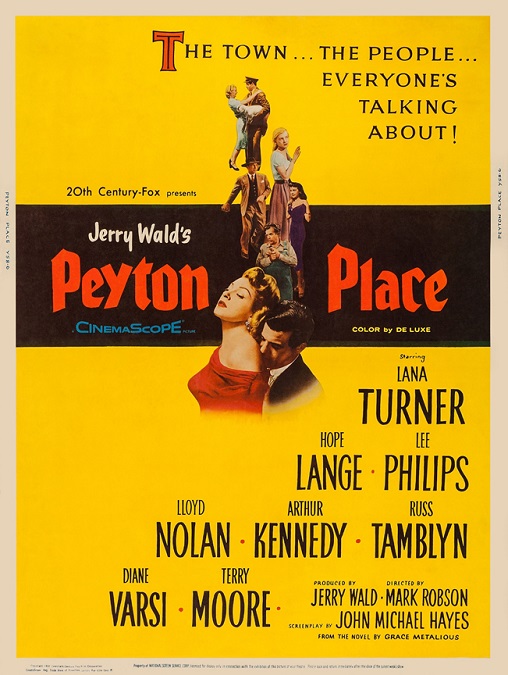
Peyton Place – 1957
This film has been called the forerunner to most modern soap operas and it isn’t very hard to see why. Take a group of people in a centralized location and throw in larger-than-life drama. Even the very nature of the plot was episodic. I’m not a fan of soaps and have never watched one on a regular basis, but I can at least understand how they can be addictive.
Peyton Place starred Lana Turner as Constance MacKenzie, a single mother with a sordid past. Her daughter, Allison, played by Diane Varsi, is a repressed, straight-laced girl who wants to be a wild-child. Her best friend is Selena Cross, played by Hope Lange, a poor girl from the wrong side of the tracks. Selena’s alcoholic step-father, is played by Arthur Kennedy. The new high-school principal is Michael Rossi, played by Lee Philips. Allison’s socially and sexually repressed boyfriend, Norman Page, is played by Russ Tamblyn.
The list goes on and on. The film is really an ensemble piece, as are all soap operas. The plot covers a wide range of stories, each character having his or her own history and motivations. But, as with most soaps, there were so many subplots, that the main plot, if there really was one, got lost amidst all the multiple story lines. But I think I’d have to say that there were really two main stories. The first is Allison’s tempestuous relationship with her mother. The other is Selena’s rape and eventual murder of her step-father. The centerpiece of the last quarter of the film is Selena’s trial.
The movie was alright, though I’m not a huge fan of soap operas. The acting was just fine and the filming locations and sets were all quite appropriate. The music was average and some of the drama was mildly interesting. But after watching Peyton Place, I went onto Wikipedia and found out why most of the movie was so bland. It was that pesky Hays Code doing its dirty little work on the screenplay.
As I have learned, the original novel, upon which the film is based, was far more racy and risqué. For example, in the movie, Selena is raped by her step-father and a year and a half later, she murders him during his second attempt. In the novel, she endures years of sexual abuse before murdering him. However, the real-life character on which Selena is based endured years of sexual abuse from her real father before murdering him. The original author, Grace Metalius, tried to tell the true story, but her editor, Kitty Messner, considered incest too taboo a subject and altered the truth. Then when the film was made and the Hays code got involved, the truth was watered down even more.
The whole point of the novel was to show a community with a beautiful and placid facade, beneath which lay a seedy underbelly made up of scandal, homicide, suicide, incest, and moral hypocrisy, all set against the backdrop of a repressive class system. But I think the film’s final result was different. It ended up being a movie about social discrimination, sexual repression, coming of age, and freedom. Throw a little rape and murder in there, and you’ve got yourself a movie. Maybe the lines between the two are subtle and thin, but a film made today wouldn’t water down the source material.
Then, of course, the film had to bring in the patriotism angle. The original novel didn’t have anything of the sort, but the movie set the scene in the early 1940s. You know what that means. WWII came around and all of the town’s young men got drafted into service. Several of the minor characters got killed off, including the town’s wealthiest business owner’s son Rodney, played by Barry Coe. In the original novel, he was killed in a car accident.
One thing that I got out of watching the movie was the idea that parents need to allow their children to be themselves, and they need to be able to let them go when the time is right. Also, the idea that parents need to teach their kids about sex. The fact that the new principal wanted to institute a sexual education class in the school must have been a controversial issue in 1957. It was a pretty progressive concept back then, though in most places, today, it is a required part of a normal education. The subject of sex was so taboo in that era that kids had nowhere to learn about the subject except with each other by experimentation. Kudos to Peyton Place for at least exploring the subject a little.



